
A think tank, or policy institute, is a research institute that performs research and advocacy concerning topics such as social policy, political strategy, economics, military, technology, and culture. Most think tanks are non-governmental organizations, but some are semi-autonomous agencies within government, and some are associated with particular political parties, businesses or the military. Think tanks are often funded by individual donations, with many also accepting government grants.

The American Enterprise Institute for Public Policy Research, known simply as the American Enterprise Institute (AEI), is a center-right think tank based in Washington, D.C., that researches government, politics, economics, and social welfare. AEI is an independent nonprofit organization supported primarily by contributions from foundations, corporations, and individuals.
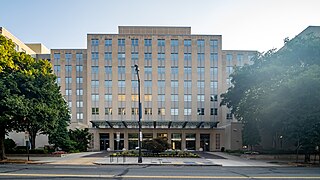
The Brookings Institution, often stylized as Brookings, is an American think tank that conducts research and education in the social sciences, primarily in economics, metropolitan policy, governance, foreign policy, global economy, and economic development.

The Institute for Public Policy Research (IPPR) is a progressive think tank based in London. It was founded in 1988 by Lord Hollick and Lord Eatwell, and is an independent registered charity. The think tank aims to maintain the momentum of progressive thought in the United Kingdom through well-researched and clearly argued policy analysis, reports, and publications; as well as a high media profile.

The Centre for Policy Studies (CPS) is a centre-right think tank and advocacy group in the United Kingdom. Its goal is to promote coherent and practical policies based on its founding principles of: free markets, "small state," low tax, national independence, self determination and responsibility. While being independent, the centre has historical links to the Conservative Party.
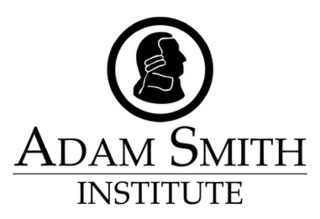
The Adam Smith Institute (ASI) is a UK-based neoliberal think tank and lobbying group, named after Adam Smith, a Scottish moral philosopher and classical economist. The Institute advocates free market and classical liberal ideas, primarily via the formation of policy options with regard to public choice theory, which political decision makers seek to develop upon. ASI President Madsen Pirie has sought to describe the activity of the organisation as "[w]e propose things which people regard as being on the edge of lunacy. The next thing you know, they're on the edge of policy".
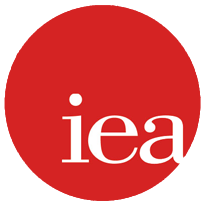
The Institute of Economic Affairs (IEA) is a right-wing, free market think tank registered as a UK charity. Associated with the New Right, the IEA describes itself as an "educational research institute" and says that it seeks to "further the dissemination of free-market thinking" by "analysing and expounding the role of markets in solving economic and social problems". The IEA is the oldest free market think-tank in the UK and was established to promote free-market responses to economic challenges by targeting influential academics and journalists, as well as students, in order to propagate these ideas widely. Adopting as its credo FA Hayek's view that "yesterday's dissent becomes today's consensus," the IEA says that it prioritises producing work with a focus on economic insights over partisan politics.
Prospect is a monthly British general-interest magazine, specialising in politics, economics and current affairs. Topics covered include British and other European, as well as US politics, social issues, art, literature, cinema, science, the media, history, philosophy and psychology. Prospect features a mixture of lengthy analytic articles, first-person reportage, one-page columns and shorter items.

The Fraser Institute is a libertarian-conservative Canadian public policy think tank and registered charity. It is headquartered in Vancouver, with additional offices in Calgary, Toronto, and Montreal. It has links to think tanks worldwide through the Economic Freedom Network and is a member of the free-market Atlas Network.

The Economic Policy Institute (EPI) is a 501(c)(3) non-profit American think tank based in Washington, D.C., that carries out economic research and analyzes the economic impact of policies and proposals. Affiliated with the labor movement, the EPI is usually described as presenting a left-leaning and pro-union viewpoint on public policy issues. Since 2021, EPI has been led by economist Heidi Shierholz, the former chief economist of the Department of Labor.
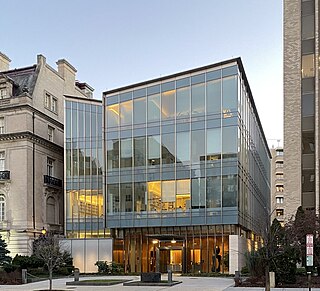
The Peterson Institute for International Economics (PIIE), known until 2006 as the Institute for International Economics (IIE), is an American think tank based in Washington, D.C. It was founded by C. Fred Bergsten in 1981 and has been led by Adam S. Posen since 2013. PIIE conducts research, provides policy recommendations, and publishes books and articles on a wide range of topics related to the US economy and international economics.
The National Policy Institute (NPI) was a white supremacist think tank and lobbying group based in Alexandria, Virginia. It lobbied for white supremacists and the alt-right. Its president was Richard B. Spencer.

The Urban Institute is a Washington, D.C.–based think tank that conducts economic and social policy research to "open minds, shape decisions, and offer solutions". The institute receives funding from government contracts, foundations, and private donors.
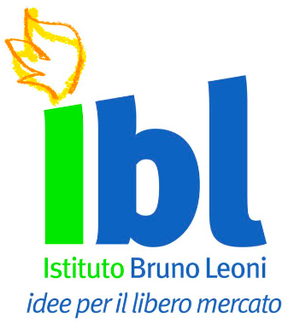
The Bruno Leoni Institute, named after philosopher and scholar Bruno Leoni, is an Italian libertarian think-tank promoting classical liberal ideas in Italy and in Europe. It was founded in 2003 by three libertarian scholars Carlo Lottieri, Alberto Mingardi and Carlo Stagnaro. IBL organizes conferences, publishes books, briefings and academic papers, and assists undergraduate and graduate students with their research work.
The Allegheny Institute for Public Policy is a conservative American think tank based in Western Pennsylvania. Using its expertise in economic development, tax increment financing, and eminent domain, it works with property owners and taxpayers to bring free market solutions to local government.

The Institute on Taxation and Economic Policy (ITEP) is a non-profit, liberal think tank that works on state and federal tax policy issues. ITEP was founded in 1980, and is a 501(c)(3) tax-exempt organization.
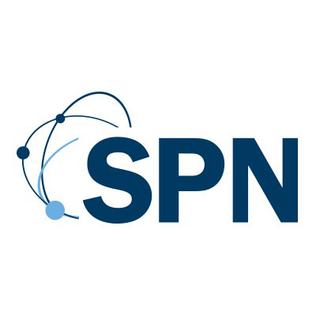
The State Policy Network (SPN) is a nonprofit organization that serves as a network for conservative and libertarian think tanks focusing on state-level policy in the United States. The network serves as a public policy clearinghouse and advises its member think tanks on fundraising, running a nonprofit, and communicating ideas. Founded in 1992, it is headquartered in Arlington, Virginia, with member groups located in all fifty states.
William Henry Regnery II was an American white nationalist political activist and donor, and an heir to a multi-million dollar fortune. He was the founder of the National Policy Institute, a white nationalist/supremacist think tank that has been credited with expanding the alt-right.

The Illinois Policy Institute(IPI) a free market nonprofit think tank with offices in Chicago and Springfield. Founded in 2002, it is active in the areas of education policy, pension policy, and state budget issues. IPI advocates for smaller government and lower taxes. It has an affiliated lobbying arm and legal arm. IPI is a member of the State Policy Network, a consortium of free-market think tanks in the U.S.
The Green Institute is an Australian public policy think tank founded in 2008. The institute "supports green politics through education, action, research and debate".














